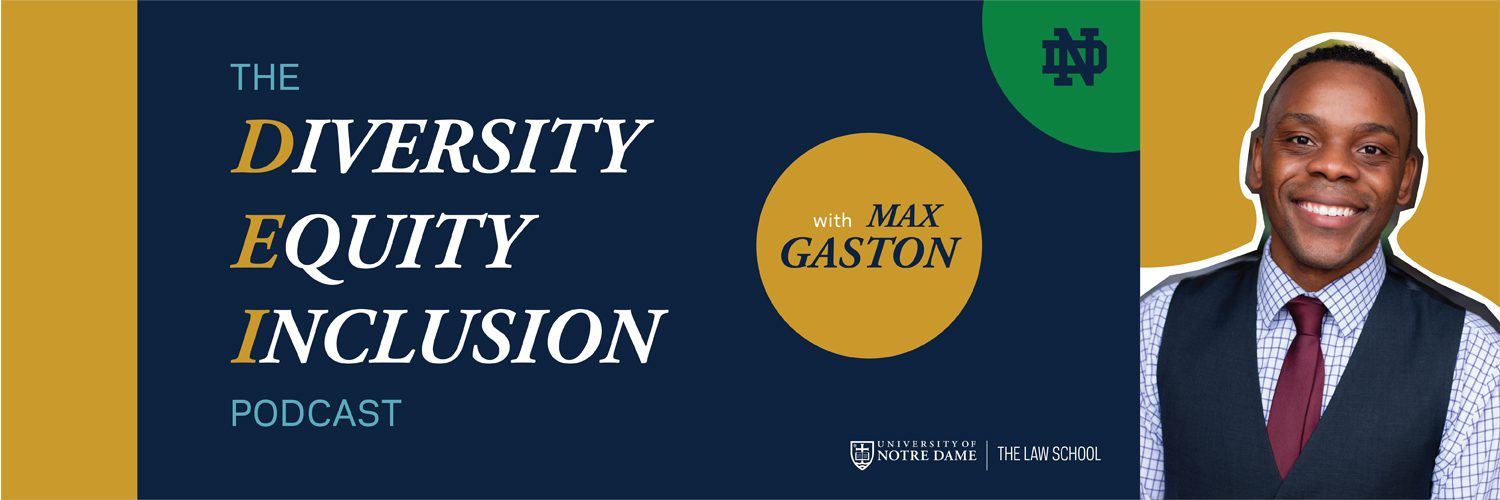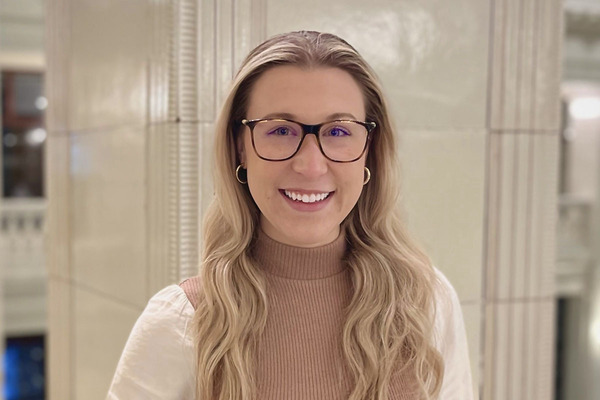The Mental Health Crisis in Prisons

What happens to a person’s mind when you lock them in a cage no bigger than a parking space? When they’re constantly exposed to dehumanizing, unsanitary, loud, and violent conditions? When red-flags continuously signal their mental decline, but no one cares or tries to help? On this episode of The DEI Podcast, we’re joined by Madison Kemker, an attorney with the Uptown People’s Law Center in Chicago, and one of Notre Dame Law School’s Thomas L. Shaffer public interest fellows. Madison discusses her experiences witnessing the state of mental health services in Illinois prisons. Madison also discusses her advocacy work in Rasho v. Jeffries, a class action lawsuit against the Illinois Department of Corrections alleging that the quality of mental health services in Illinois state prisons is so poor that it violates the Eighth Amendment’s prohibition on cruel and unusual punishment. Madison then talks about the public interest path in law school, and how the legacy of Notre Dame calls all of us to be advocates for civil and human rights.
Listen to the Episode
Presented by Notre Dame Law School
Monday, July 10, 2023 8:00 am
What happens to a person’s mind when you lock them in a cage no bigger than a parking space? When they’re constantly exposed to dehumanizing, unsanitary, loud, and violent conditions? When red-flags continuously signal their mental decline, but no one cares or tries to help? On this episode of The DEI Podcast, we’re joined by Madison Kemker, an attorney with the Uptown People’s Law Center in Chicago, and one of Notre Dame Law School’s Thomas L. Shaffer public interest fellows. Madison discusses her experiences witnessing the state of mental health services in Illinois prisons. Madison also discusses her advocacy work in Rasho v. Jeffries, a class action lawsuit against the Illinois Department of Corrections alleging that the quality of mental health services in Illinois state prisons is so poor that it violates the Eighth Amendment’s prohibition on cruel and unusual punishment. Madison then talks about the public interest path in law school, and how the legacy of Notre Dame calls all of us to be advocates for civil and human rights.
To receive an email each time an episode is released on ThinkND, please register for free here.
The DEI Podcast with Max Gaston is sponsored by Notre Dame Law School and co-sponsored on ThinkND by the Black Alumni of Notre Dame, the Alumni Rainbow Community of Notre Dame (ARC ND), YoungND, Native American Alumni, Notre Dame Women Connect, Hispanic Alumni of Notre Dame, Notre Dame Senior Alumni, and Asian Pacific Alumni of Notre Dame.
View EventMeet the Speaker: Madison Kemker '23 J.D.

Madison Kemker, was awarded a 2022 Thomas L. Shaffer Public Interest Fellowship.
The fellowship, named in honor of former dean and professor Thomas L. Shaffer and funded by donor support, covers the salary and benefits for two Notre Dame Law School graduates to work for two years at a nonprofit organization providing legal services to low-income or other underrepresented populations.
Madison Kemker completed her fellowship at the Uptown People’s Law Center (UPLC) in Chicago. She monitored and enforced the settlement agreement reached between UPLC and the Illinois Department of Corrections through the class-action suit Rasho v. Jeffreys. The goal of the suit is to overhaul and reform the way people with serious mental illness are treated in Illinois prisons.
Since the settlement agreement was reached in 2016, the court monitor has repeatedly found that the Illinois Department of Corrections is failing to comply. The court monitor has reported that the available psychiatric care is both “grossly insufficient” and “extremely poor” in quality. Additionally, there are serious problems with the continuation of medication upon entry into prison, with the failure to monitor effects of powerful psychiatric medications and with the enormous backlogs in psychiatric evaluations.
“The settlement agreement I will be enforcing mandates that the Illinois Department of Corrections provide constitutionally adequate care in accordance with the Eighth Amendment,” said Kemker.
Research has shown that when there is a lack of mental health services available to incarcerated people chronic mental illness is exacerbated and additional physical harm and trauma occur. In more serious cases, lack of adequate mental health treatment can lead to suicide, especially for those with lengthy sentences.
“This is an important issue in Illinois, where parole was abolished in 1978. Subjecting mentally ill incarcerated people to the difficult conditions of incarceration without treatment is cruel and unusual punishment,” said Kemker.
She was drawn to this particular fellowship after an experience while she was a legal intern at the American Civil Liberties Union of Indiana during her second-year summer. She reviewed an intake letter from an incarcerated person who described his experience in a restrictive housing unit where he was in total darkness for 23 hours a day, subjected to painful shocks from exposed, live wires in his cell, and experienced other physical and mental traumas.
“The conditions he described were not isolated to his cell and I left my internship knowing that these individuals deserve better. Incarcerated people often carry the burden of their own litigation and do so under exceedingly stark conditions. These restraints include limited access and resources to legal counsel and research, an onerous grievance and administrative appeals process, and routine cell transfers,” said Kemker. “Watching incarcerated people face these systemic hardships while advocating for their own humane treatment motivated my fellowship project at the Uptown People’s Law Center.”
While at Notre Dame Law School, Kemker has been involved with the Women’s Legal Forum and the American Constitution Society. She served on the Voting Rights Subcommittee of the National Association of Women Lawyers Advocacy Committee, and on the Volunteer Advocacy Team for Restore Justice. She was also a part-time law clerk for Foley & Small in South Bend. Kemker also participated in the ND Law in Chicago externship program, gaining experience working on civil rights matters.
Additional Resources
Click here to read about the Rasho v. Jeffries litigation and what is being done to address the mental health crisis in Illinois prisons.
